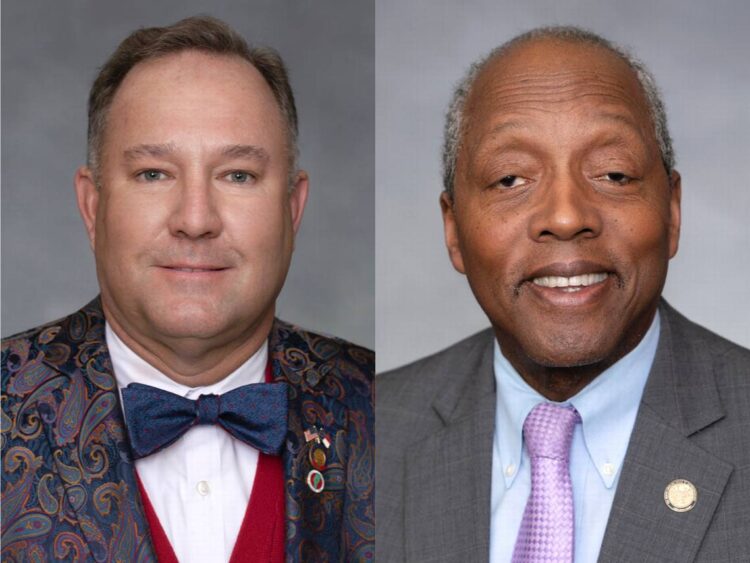North Carolina Rep. Jeff McNeely had a Freudian slip on the N.C. House floor this past week because what he said was perfectly emblematic of a GOP mindset that is dragging the Tar Heel state back to the 1950s.
McNeely, a white Republican who has served in the House since 2019, directed a revealing question to Rep. Abe Jones, a Black Democrat, during a debate about private school vouchers.
Before he was cut off McNeely said: “I understand that you went into public schools and you went to Harvard and Harvard Law. And the question I guess, is, would you have been able to maybe achieve this if you were not an athlete or a minority or any of these things, but you were a student trapped in a school that the slowest — you know, in the wild we’ll say the slowest gazelle does not survive, but yet the herd moves at that pace. So the brightest child sometimes is held back in order —”
The man McNeely questioned is the son of a Saint Augustine’s University professor, the first Black member of the student council at Enloe High School, and a man who served for nearly two decades as a N.C. Superior Court Judge and has a Harvard Law degree. But to McNeely, Jones was little more than his skin color and athletic ability. Jones also ran track at Harvard.

I’m certain McNeely does not think himself racist or see himself as a knuckle-dragger. Maybe that’s why he later apologized to McNeely, as did many Republicans, after being heavily criticized.
“I want to deeply apologize to Rep. Jones and to this entire body,” McNeely said. “I respect Rep. Jones. I think he’s a great legislator. I think he’s a great man.” McNeely added: “What I tried to ask or say did not come out right.”
Oh, but it did.
McNeely is part of a political movement tearing down the New South to reinstall the Old South, particularly in our region of the country. McNeely and others like him in North Carolina, South Carolina and Georgia are uprooting the right of women to have control over their own bodies by implementing barbaric laws that make pregnancies more dangerous. They are conjuring up ways to dilute the Black vote with unconstitutional gerrymanders to hold onto power that far exceeds their support from the public. They’ve demonized and scapegoated transgender people to scare white moderates into remaining loyal to the GOP no matter how anti-democratic the party becomes. They’ve advocated egregious censorship laws and veritable book bans, what in effect amounts to a Lost Cause 2.0. They’d rather bury than grapple with the reality of how we came to be. They prefer an arrogant ignorance over a discomforting truth.
And they’ve done it all with a smile on their faces and self-righteousness in their hearts.
They don’t wear hoods. They are more likely to be caught praising Jesus than spouting racial epithets. In moments such as the one this past week between McNeely and Jones on the House floor, they are even willing to sound humbled and apologize to a Black colleague they had demeaned with a racial stereotype often deployed to put Black people back in their place. Not even Black men as accomplished as Jones can avoid such belittling.
Don’t you dare refer to men like McNeely, and others trying to embed white-minority rule in a rapidly diversifying nation, as racist. Or uncaring. They are God-fearing men and women. They are just parents concerned about the plight of their children. They are the real Americans trying to serve their communities, save their state and the nation like the white patriots of old.
I believe McNeely did not intend to say what he said, which was in essence calling Jones “boy” the way white men once routinely referred to Black men despite their age or station in life. But the thoughts that led to McNeely’s considered remarks didn’t materialize out of nothing. They are evidence of what was in his head, rooted in his heart. We shall be known by our fruits, remember.
McNeely’s words weren’t a one-off. They are indicative of what his party has become.
Issac Bailey is a McClatchy Opinion writer based in Myrtle Beach, SC., and is the James K. Batten Professor of Public Policy at Davidson College.
[ad_2]
Source link







